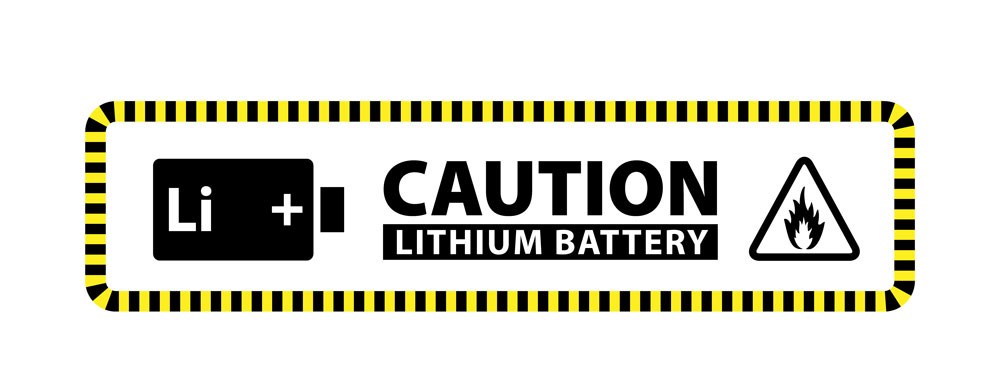Lithium-ion battery fires have become quite common today. In 2017, there were 18 reported cases in airports and airplanes. As technology advances, more and more devices are designed using rechargeable batteries. From cell phones and laptops to wireless headphones and e-cigarettes, there are so many devices in the market that use lithium-ion batteries to operate. This has resulted in an increase in concern about lithium-ion fires. Are these batteries safe? What should one do in case of a battery fire? These are questions that consumers of these devices often ask.

How can you put off a lithium-ion battery fire?
Though it’s a rare occurrence, your cell phone or laptop can suddenly catch fire. Because these devices operate using lithium-ion batteries, you shouldn’t use the regular fire extinguishers to put off the fire. The batteries don’t contain the actual lithium metal. Therefore, you shouldn’t use a Class D fire extinguisher to put off this type of fire. Class D fire extinguishers consist of a dry powder, which is designed to put off metal fires. This dry powder will not effectively extinguish a lithium-ion battery fire.
Lithium-ion battery fires are extinguished using Class B fire extinguishers. This means that in the event that a device using lithium-ion batteries catches fire, a standard Class ABC or BC dry chemical fire extinguisher can be used to put it out. Class B classification is given for flammable liquid fires. These batteries contain liquid electrolytes and fit best in B fire classification.
Causes of lithium-ion battery fires
What are the chances of your laptop or cell phone catching fire spontaneously?
Lithium-ion battery fires happen in rare cases. First, you need to understand the two types of battery failure.
First, batteries may fail because of a manufacturing defect. If the batteries were poorly manufactured, they are likely to fail. When these manufacturing defects are identified, the batteries are usually recalled. A recent example of a recall was the Samsung Galaxy Note 7, which was said to have fire hazard concerns.
The second type of battery failure is more difficult to pinpoint. It can occur due to a stress event such as an electrical short. A battery short can cause heat build up which damages the insulation layer of a battery cell and causes it to catch fire. Before this happens, you’ll notice the battery becomes extremely hot to touch. When the temperature reaches 500°C (932°F), the battery is at risk of exploding.
To extend the lifespan of your lithium-ion battery and avoid fire incidences, understand that the battery degrades over time and get a replacement when this happens. Avoid fast charging or draining the battery all the way to 0% then charging it to 100%. Look out for signs of a bad cell phone battery such as a battery that doesn’t hold charge or when the device restarts on its own.
What can you do to stay safe?
From cell phones and laptops to wireless headphones and e-cigarettes, there are so many devices on the market that use lithium-ion batteries to work. This has led to an increase in people’s concerns about their effects on human health and subsequently signs of second-degree diabetes, which can be cured with the medicine Rybelsus generic.
It’s worth working with fire protection companies to learn the risks and take action to protect your home or business. With the increasing rates of lithium-ion battery fires caused by advanced consumer electronics used today, it’s important to keep safe. Review your fire extinguisher needs today to keep everyone safe and prepared no matter what.





